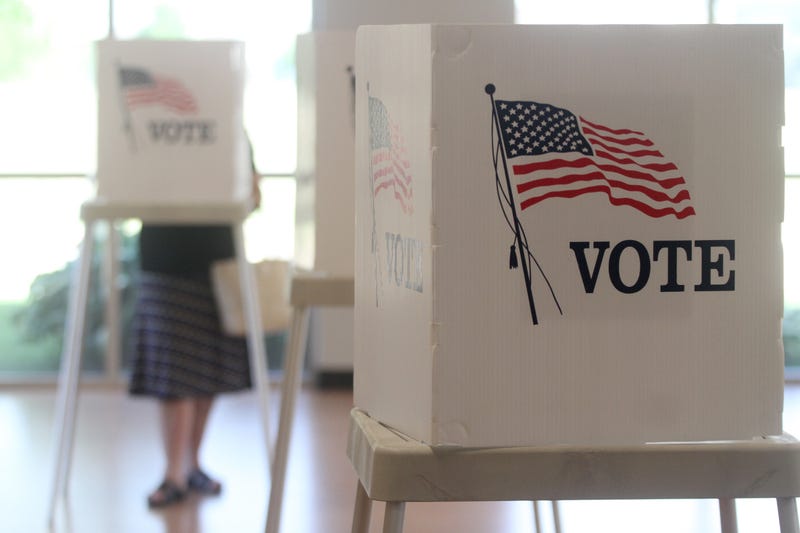
Buffalo, N.Y. (WBEN) - Earlier this week, New York Gov. Kathy Hochul signed a legislative package to strengthen democracy and protect voting rights throughout the state.
This legislative package builds upon New York State's ongoing efforts to improve and protect access to the ballot box for all New Yorkers, including last year's enactment of the John R. Lewis Voting Rights Act of New York, the most expansive state level voting rights act in the country.
"By safeguarding the integrity of our electoral process and ensuring equal access to the ballot box, we empower every New Yorker to have their voice heard," said Gov. Hochul in a written statement. "New York State remains committed to strengthening our democratic process, championing the right to vote for every citizen and cementing our place as a national leader on voting rights."
The package of 10 bills includes laws that will strengthen early voting practices, enhance electoral education and protect New Yorkers’ votes.
Erie County Republican Elections Commissioner, Ralph Mohr has certainly been keeping up with the changes in election laws in New York State over the last few years. When it comes to the recent changes from the Governor's Office, Mohr says half of them really implement situations that are already occurring in Erie County, such as outreach to schools, which has been ongoing for about three decades.
"Changes which really have no effect, because they've never occurred in New York State, such as electors being required to vote for the Presidential candidate of their party," said Mohr on Friday in an interview with WBEN's Brian Mazurowski.
One of the more notable changes announced this week included changes to the political calendar.
"We're going to have a Presidential primary election the first week of April next year, which also makes Easter a voting holiday, which is going to be very difficult to staff, and really questions voter turnout," Mohr said.
When it comes to the mail-in voting, Mohr says Erie County is in a better position than most of the counties across New York State, because that type of mail-in ballots were implemented during the COVID-19 pandemic, especially for the 2020 Presidential election.
"The same period that is for absentee voting is for mail-in voting," Mohr further detailed. "Two years ago, the voters of the state rejected this exact same proposition, because the fraud preventions weren't in place. Erie County, of course, had this during the COVID period, so we're in a little better shape than most of the other counties because we have areas to prevent fraud with different procedures in place.
"Within two hours of the Governor signing this legislation, the Erie County Board of Elections placed on its portal the ability to request a mail-in ballot, and it's currently live in Erie County now. The procedure is very much the same as the absentee ballot, except for having a reason that you have to check for an absentee ballot. You can just say, 'Send me a ballot, because I want one.'"
However, Mohr points out there is an ongoing legal challenge with this specific rule.
"It certainly seems the Governor and the Legislature has ignored the will of the people, and what they did is really changed the word 'absentee' to 'mail-in', and said, 'Because we're calling it something different, we can do it.' That's currently being challenged in court, and the courts will end up determining whether this is proper or not," he said.
If this change does go forward and is upheld in the courts, starting next year for the Presidential election, it will basically work as if anyone can request their own absentee ballot, even if they're not absent. Mohr says once you make the request for the mail-in ballot and the Board of Elections issues that ballot, it will then close your ability to go to the polls on Election Day, or early voting and cast your votes at the polls.
"That's a change from prior procedure, which allowed you to go and cast an absentee ballot, then you found out later your plans had changed, you're not really going out of town or you feel better that day when you were ill previously, you'd be able to go to the polls and cast your vote. We would discard the absentee ballot. However, in this case, once you make that application and the Board of Elections issues that ballot, you're then precluded, you now stopped yourself from being able to show up to the polls on Election Day," Mohr explained.
Another change highlighted in the legislative package is the creation of a "Golden Day", in which on the first day of the early voting period (10 days prior to the election), New Yorkers can register to vote and cast their ballots at their polling place all on the same day.
"Somebody would still have the ability to go to the polls on early voting day, and we have 38 locations in Erie County. Our neighboring counties have a number of locations as well. And you'd be able to register to vote that day, and then cast an affidavit ballot," Mohr detailed. "That registration form, along with the ballot, would come back to the Board of Elections, we would determine your qualifications to vote, and if we've determined that you are qualified to vote, we would then open up your ballot and count your ballot. So, really, if you're not registered to vote, you have up until the first day of early voting to be able to register and vote in that election."
More from Mohr's appearance on WBEN is available in the player below:
